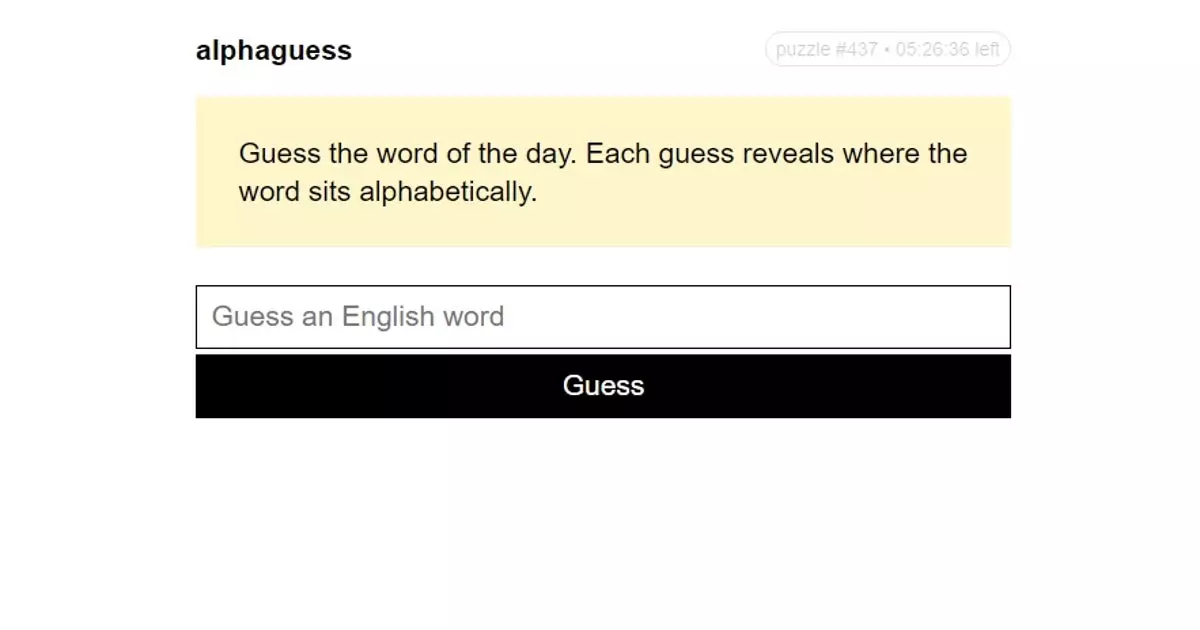In an age where productivity is highly valued, individuals often find themselves in a battle against distractions that encroach upon their focus and efficiency. The proliferation of puzzle games such as Alphaguess epitomizes this paradox. While we may strive to enhance our productivity, these games, with their endearing simplicity, become delightful diversions—albeit ones that warrant a critical examination.
Alphaguess presents itself as a straightforward browser game requiring players to deduce a mystery word through strategic guesses. The game’s premise is refreshing in its simplicity: for every incorrect attempt, players receive a hint that signals whether the correct word precedes or follows their guess in the alphabet. However, simplicity can often lead to an underestimation of a game’s stimulating potential. The initial obscurity of the answer pairs with the satisfaction derived from ultimately reaching a solution, thus generating a quirky sense of accomplishment. It mirrors childhood games where participants guess a number within a known range. Yet, what elevates Alphaguess into a daily ritual for many is its ability to weave enjoyable mental exercise into the fabric of our busy lives.
There is an undeniable paradox surrounding these puzzle games. On one hand, they’re lauded as frivolous activities that steal away precious minutes. On the other hand, the engagement they elicit is profound. Players often find themselves lost in thought, grappling with language and its intrinsic rules, however straightforward they seem. For instance, the endeavor to find a word like “muddle” may just seem like a whimsical journey but involves critical thinking and cognitive engagement. This dichotomy raises an interesting question: Are activities that seem trivial truly wasteful if they stimulate our minds and provide a momentary escape from our relentless productivity-driven routines?
Traditional puzzles often demand extensive lateral thinking and a deeper understanding of complex rules. However, offerings like Alphaguess challenge this notion by presenting a more accessible form of cognition that still entertains and engages. The absence of a steep learning curve is precisely what makes them enticing for a diverse audience. Even in their simplicity, the puzzles foster a communal experience—players can share strategies and celebrate their successes on social platforms. This interaction transforms a solitary activity into a shared pursuit, bringing people together in their quest for guesswork and language exploration.
Ultimately, whether we begrudge or embrace the distraction of games like Alphaguess, they represent a unique intersection between leisure and intellect. By viewing these puzzles not just as mere time-sinks but as exercises in creativity and cognitive agility, we can redefine how we integrate such activities into our lives. In this quest for balance between productivity and play, the challenge lies in recognizing the value of mindful distractions.

